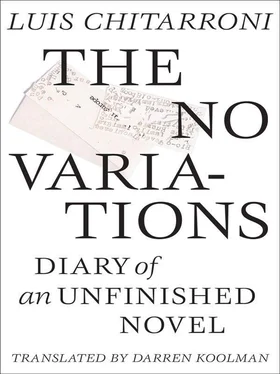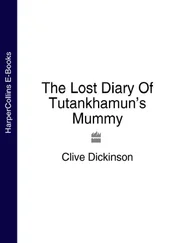Later, when the Uruguayan finally said the last word on the last of her serious topics, Zi and I began discussing our own: Francisco Coloane, Pablo Palacio, Pilar de Lusarreta, Pedro Leandro Ipuche. No one was paying attention. Our conversation ran its course.
13.10. In the middle of the Xochimilco event (nobody could tell if it was really the middle, considering where we were and our level of drunkenness), but we were actually in the middle of a perfectly blue, perfectly oval lake, a perfectly reflective lake as would be found in the northern land of Zembla. Zi, on returning from somewhere far away, or, according to Luini, a distant and unchartered X that encroached on the letter Z — for Zembla — was in good spirits, and he broke into a recitation, chanting the measures, counting the beats for the synod’s delectation. At the expense of the parrot / and forgoing any Latin / this sonorous feat / by Aurelio Asiain:
Salvador Novo was suppressing his laughter
as he proudly unveiled his smiling Mona Lisa:
A photograph of José Gorostiza—
Fair-haired pharos of fishermen’s trawlers—
flanked on both sides by many a señora .
And as time went by, it was as if Zi’s words were filling an old scrabble board sustained on Xochimilco’s noonday shoulders.
13.14. Then suddenly the drunken boat lurched towards a topic already discussed the evening we were at the widow’s house, Federico Prosan. But one of Luini’s imprudent interruptions saved the day. Who are the ones responsible for the literary supplements over there ? A bunch of kids, we said. Explanation of what we meant. Gave examples. Then we came to a unanimous conclusion. Just like here , we said.
13.27. The huge head was the very first thing we saw. The legend goes that when he leaves his [ancestral] bed for the second time , he does so feet first. But no. The great mythological monster slowly emerged according to the normal conventions of birth, top to bottom, looking like a huge stuffed animal that was custom made for an acromegalic child … Without hair! “Residual alopecia,” said Zi, taken aback. Then there was a rumbling noise like the sound of distant thunder, or a seismic event attenuated like a wave by the very air, the breeze transmitting it.
True, the circumstances demanded more than cheap suspense. There was supposed to be introspection. I was distracted by the sight of Zi looking at the giant head. There wasn’t an iota of energy wasted on those commonplace reactions of amazement and wonder. That’s right [he was introspecting]! He seemed to absorb the image like the pages of my Mexican journal absorbed the ink from my pen. Ah, my Mexican journal. With such beguiling voracity it absorbed [drank, swallowed] the ink from my pen! I bought it the day after I arrived on Donceles Street, in one of those stores that always confuse tourists because they sell different things and things under different names to the right, correct, and just way they’re used to back home.
13.41. The Great Chihuahua of Xochimilco wasn’t a Chihuahua per se (that, in itself, would’ve been horrific), but something worse, something more appalling: one of those ugly hairless dogs they (in the United Provinces of Río de la Plata; in the northern part, that is, where they use them to heat the bed) call perros pila . In someone’s chronicle of the Indies — or an apocryphal chronicle, certainly not one by Bernal Diáz del Castillo — it is stated that, when Hernán Cortés saw it for the first time, he christened it Egito. Perhaps it’s in Prescott. The fact it didn’t have any hair, made it look eerie, supernatural. Then there’s the size — like the Trojan horse the Greeks left as a tribute to ensure a safe passage home (see Chapman). The one “that was then stuffed full of armed knights,” as Cervantes wrote. And that’s what terrified me. Perhaps the number of men hidden in its interior was only known by a woman (to the chagrin of every male, especially T. S. Eliot), a woman called Laura Riding.
13.44. Stuck like remoras to its muddy flanks were water lilies, Victoria Regia, and scraps of posters — some with political captions, others by the CONACULTA with old ringing slogans like Put the Garbage in the Trashcan …
It looked way-worn; you could tell this was its second time out. A crowded boat with a mariachi band approached it, strumming their guitarrons, striking their marimba, and whining tiresomely. At my side, Aída began singing the Argentine National Anthem, which she knew by heart (she’d learned it at a private school, a multilingual college where she was made to memorize the anthems of many countries. But of all the anthems in the world, for some strange reason — not an intellectual one — the Argentine was her favorite).
13.50. That was quite painful. We vented our distress using appropriate exclamations in various languages, the last of which was:
13.51. Good grief! And I was reminded of (Terry Southern’s and Cathy Berberian’s) Candy. Oh, yes : as any spectacle or show, the manifestation required either an entrance into or exit from a body. To enter through the ass as Perelman’s brother-in-law described in The Dream Life of Balso Snell . Our natural acquiescence to the rhythm of the spectacle seemed to indicate our weariness of flesh, our general malaise with all the rituals we perform to gratify it, with the institutions established in its name (including adultery). Dung & Death . And the voice of Aída, a firm contralto, at my side:.”. digníisimo abrieeeron, / La h s provincia h sunida h del Sur.”
13.55. Y los libres del mundo responden . Eroticism of the heart, of the gut. Naïve eroticism. Vargas was the first to capture this in his pioneering Playboy pinups. An intellection of adolescence and youth, The playmate as fine art . Rita Renoir, Balthus, Meret Oppenheim (those tight-fitting bridal shoes!).
In my country, zit-faced teens were given official sanction to go exploring in landfills and garbage dumps for their moral principles. So they gathered around a horrible toadstool covered in blemishes and eschars, for these made it look a fitting exemplar, or perhaps it was more a leprous garden gnome, who carried his personal tragedy with him everywhere he went, and because of his dual nationality, bumped into us more often than not. And overwhelmed by the lack of conversation … My first sensei used to say: “Leave it to Eiralis.”
14.01. Slow liturgical return of the great canine of Xochimilco to his dwelling in the dark episcopal depths where he sleeps on a midden of his own making. Just before disappearing altogether, a wild yodeling voice suddenly rose above the mariachis whines and Aída’s rousing song, a voice like a gringo’s, a cowboy’s, like Jimmy Rodgers’. I wanted to believe it was His voice speaking to Me. No, not to Me: I lost that majuscule some time ago.
Aída transferred the contents of her glass to Luini’s. The act was appreciated. There was mention of the coyotes’ encounter with the great dog we just saw. Hernán said it was idle gossip spread by Coyocoán intellectuals in order to secure their grants. As if they needed them. In the meantime, these intellectuals had moved to some godforsaken place far away which, after some years, became for them the true Coyocoán. There, Aída kept a garden of carnivorous plants cultivated in volcanic soil. Carbonic anhydrase toxicity .
14.08. He, however — Hernán Descortés — had failed to secure even a penny for the Lowry de Cuernevaca Museum, the posthumous writings of Sigbjørn Wilderness. “Sestina in a Cantina.” Evelyn Waugh had written a book about Mexico (he promised he’d send it to us). Waugh was staying at the Ritz in the Zócalo: my first impression of Xochimilco eleven years ago. We offered up Christopher Isherwood’s complementary: The Condor and the Cows . I had an abridged edition in Italian.
Читать дальше












